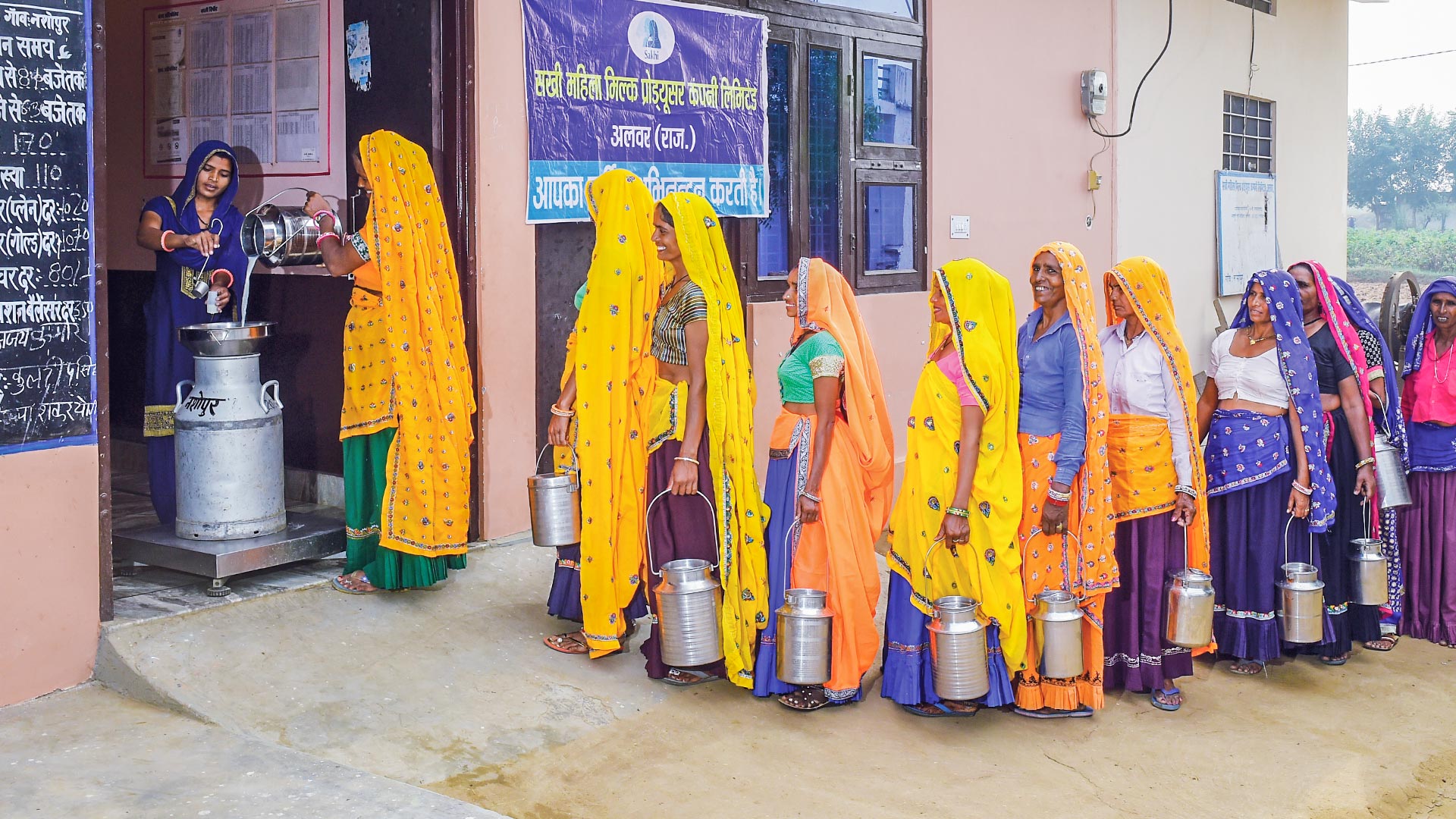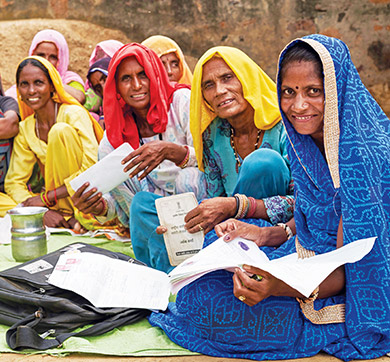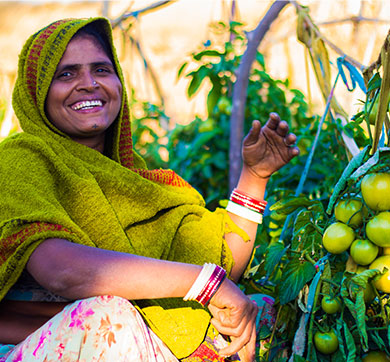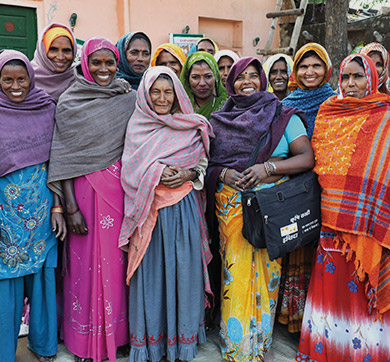March 2022 | 1554 words | 6-minute read
Rajeshwari would not have believed, five years ago, that selling milk could change her life. Back then, hawking the surplus milk produced by her two buffaloes was a pain for this farmer from Jaitapur village in Uttar Pradesh’s Pratapgarh district. Sometimes buyers in the local market wouldn’t want any, and the milk would go to waste. Her earnings were meagre even if they did buy it. That was before Ms Rajeshwari joined the Shwetdhara Milk Producer Company (MPC) in 2016.
Ms Rajeshwari now trades 15 litres of milk every day to Shwetdhara. The process is quick, easy and transparent; not a drop stays unsold; and Ms Rajeshwari has a reliable stream of income that is credited into her bank account every 10 days. It’s money well-earned and much needed. “I’ve been able to put my daughter through nursing college and soon I’ll get her married,” she says. “I’ve bought more cows and buffaloes and built a proper shelter for them.”
Ms Rajeshwari is one of 81,305 dairy farmers — 93% of them women — who have made milk their passport to a brighter future. These farmers are members of five MPCs that operate in 1,707 villages spread across the states of Rajasthan, Uttar Pradesh, Punjab, Haryana and Maharashtra, and they are at the heart of an initiative nurtured by the Dairy Health and Nutrition Initiative India Foundation (DHANII).
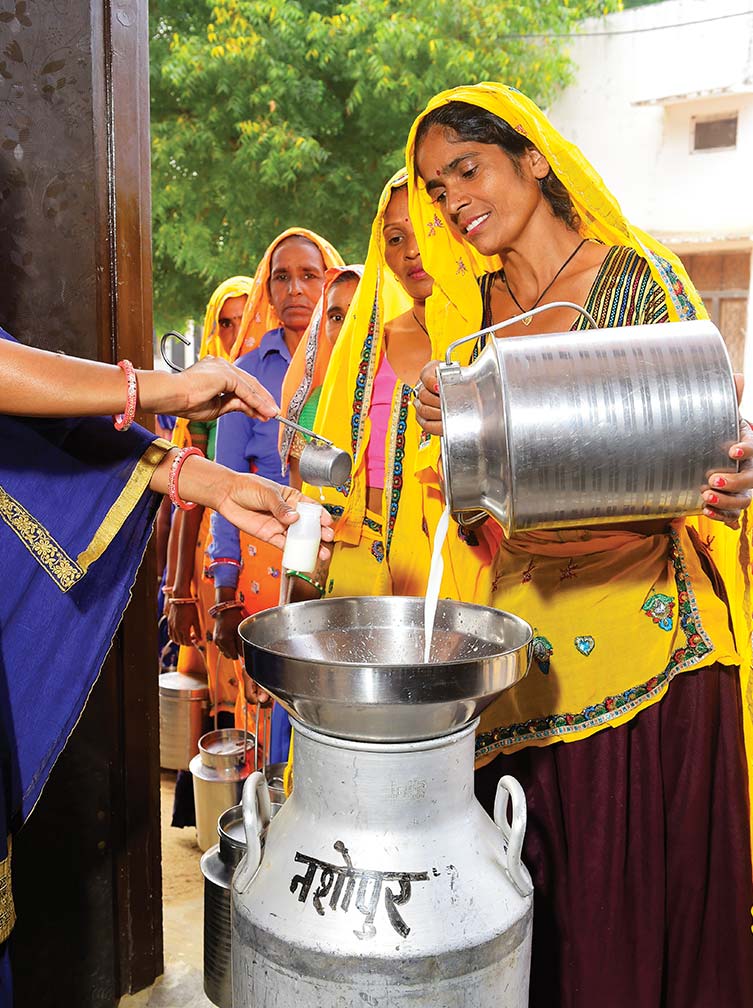
DHANII is a nonprofit that works as a delivery and implementation arm for the Tata Dairy Mission initiative, an effort by the Tata Trusts to enhance the incomes of milk producers in rural India through capacity building. It also links them to markets and gets them current knowhow in breed improvement and animal health and nutrition. In essence, the Mission is crafted to support what remains a traditional livelihood source for countless households in the country’s rural reaches.
The rearing of livestock has always been an additional livelihood practice for small and marginal farmers in India’s villages, contributing an estimated 15-20% to annual household income. To consume and, if possible, sell milk is the way with poor families owning livestock, and they use this as insurance against the vagaries of agricultural life.
Keeping livestock is one thing; making the most of them quite another. That’s the part that DHANII is designed to help with. The Foundation provides dairy farmers with the means and the knowledge to grow healthy livestock, to increase production and distribution of good quality milk and milk products, and to undertake allied activities.
Dairy for income impact
“DHANII was born after we learned, during the course of our livelihood projects in rural India, that a dairy intervention in certain geographies could have a high impact on farmer incomes,” explains Baljinder Saini, regional manager with the Tata Trusts. With technical backing from NDDB Dairy Services (NDS), a not-for-profit company operating under the National Dairy Development Board (NDDB), DHANII enabled the setting up of five milk producer companies (MPCs). These entities are owned by the dairy farmers themselves.
The dairy programme has expanded rapidly since its 2016 launch, with the MPCs now procuring an average of 340,000 kg of milk per day. The milk is channelled to an institutional buyer, the NDDB-owned Mother Dairy, for a fair price. It is a system that works to the advantage of small sellers like Ms Rajeshwari, who have to function in a milk business milieu quite different from that in developed countries.
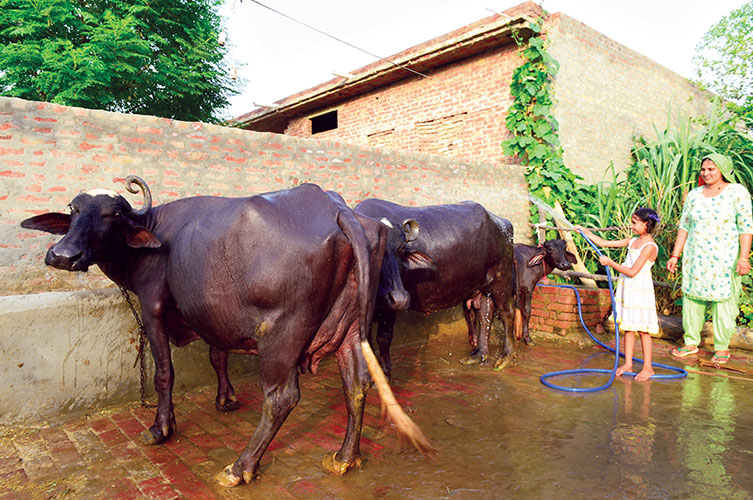
The organised sector dominates in large milk-producing countries in the West. In India, this sector accounts for about 20-30% of procurement, with the rest being supplied by local milkmen and private players. Rural dairy farmers are often at the mercy of these people, and they are further hindered by their lack of knowledge about modern-day livestock rearing and by their the limited access to markets and bank credit.
The dairy cooperative movement was introduced in India in the late 1940s to remedy such problems. MPCs, a more recent phenomenon, go a step further by tilting the scales in favour of milk producers. Unlike in cooperatives, only milk producers can become MPC members, and that minimises external meddling. Importantly, the MPCs belong to their members and they run it with the help of an appointed team of professionals.
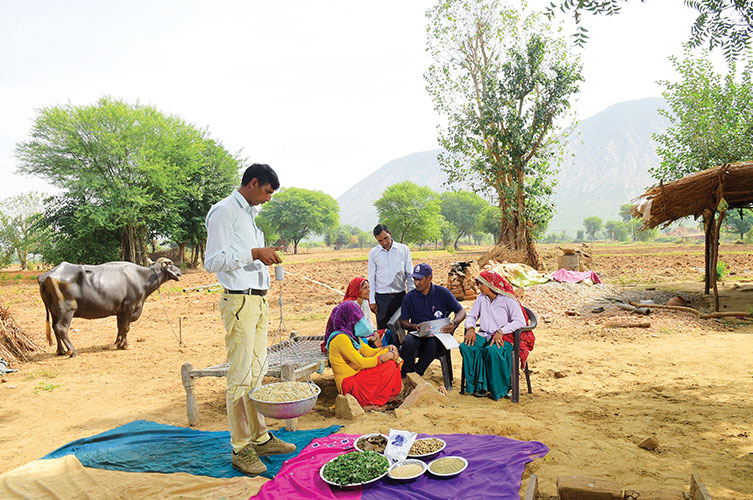
Ensuring that their milk maintains its purity, is vital for the MPCs. The village pooling points where members sell their produce have machines that display the fat and solid-non fat (SNF) content of the milk brought in. The price the farmers get is based on the quality of the milk they supply. The machines also exhibit milk rates and payment for the milk procured.
The rates offered by the MPCs are usually higher than what producers get outside, and the difference can add up significantly. “I used to get Rs 25-30 per litre before I became a member; now I get around Rs 50 per litre,” says Shanti Chaudhary, a member of the Asha MPC in Pali, Rajasthan. “Thanks to this and the nutrition and health services provided by the MPC, my dairy income has doubled to Rs 12,000 a month.”
The female factor is built into the DHANII-backed MPCs, all but one of which are exclusively for women members. There are compelling reasons for this. “In villages it is the women who usually take care of livestock, and the extra earnings are very useful to them, especially during emergencies,” says Manjit Kaur, chairperson and director of the Sakhi MPC in Alwar, Rajasthan.
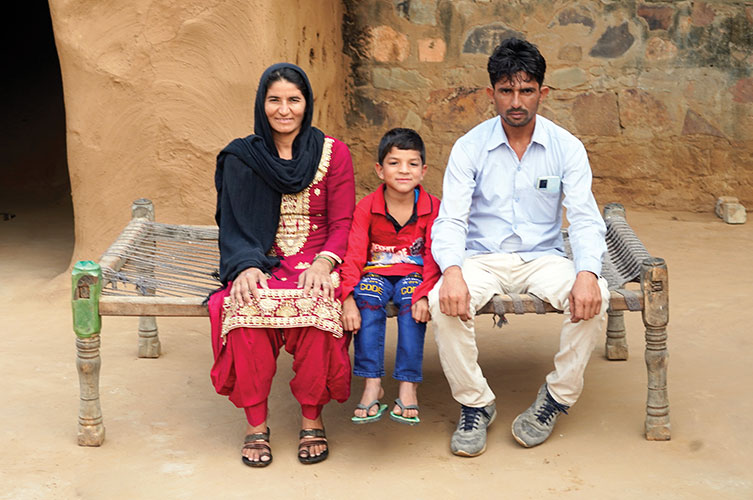
Banking on milk to make a difference
Zulfina Bano was a graduate student when the Sakhi Mahila Milk Production Company (MPC) launched its operations in 2016 in Alwar, Rajasthan. A resident of Ronpur village, she lost little time becoming a member, but soon found out that not everyone was as sanguine as she about the company’s prospects.
“We went to a bank to open savings accounts for Sakhi’s members and the officials there admonished us and sent us back. They said the MPC would run away with our money,” recalls Ms Zulfina. “Now the same officials call and ask if we require any financial assistance.”
The reason is the roaring success of Sakhi, with its membership growing to some 32,000 dairy farmers. The average monthly income of these milk producers has also gone up from Rs 3,800 a month to Rs 9,600 over a five-year period.
Sakhi finding its own milky way is a source of pride — and valuable income — for Ms Zulfina. “Money earned from milk has enabled me to complete my graduation and do a BEd [bachelor of education] after that,” she says. “My children study in an English-medium school and all of this is self-funded. I didn’t have to borrow a rupee.”
Ms Zulfina plans to buy more cattle and up her milk production to 200 litres a day. She needs funds for this and Sakhi is assisting her in procuring a collateral-free bank loan. Getting the bank’s okay is not going to be an issue. As Sakhi’s chief executive, Dharmendra Chaudhary, puts it, “They have understood the power of 32,000 women.”
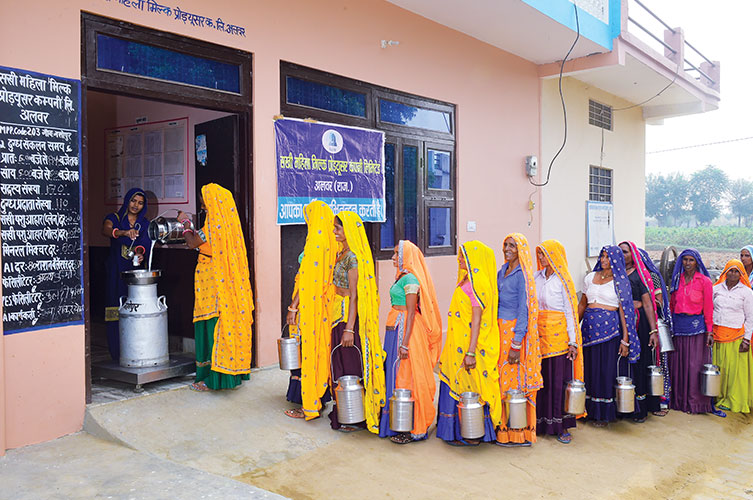
Setting the standard
Sakhi, the first MPC set up under DHANII, has won multiple awards for its governance standards. Says Dharmendra Chaudhary, its chief executive: “We help members procure collateral-free loans of up to Rs 1 million so they can buy more livestock and increase their incomes. We have also helped them get credit cards and are in the process of securing group and medical insurance for them and their children.”
Mohini Mahanur, a member of the Indujaa MPC in Nanduragaon in Maharashtra’s Yavatmal district, vouches for the benefits of the programme. “These go beyond the conveniently-located milk pooling points and the timely payments,” she says. “We get cattle food and supplements at subsidised prices; the doorstep artificial insemination services are more cost-effective than elsewhere; we have learned to grow better-quality fodder and veterinary assistance can be easily availed.”
“We explain the science to them and that allows them to develop a long-term perspective on the health of their cattle and the quality and quantity of the milk the animals provide,” says RS Sahota, a productivity enhancement consultant with DHANII. “Knowledge of the right dairy farming practices pays richly over time.”
DHANII has supported the MPCs financially through grants to cover infrastructure for milk collection, bulk milk coolers and operational costs. The MPCs have responded by proving their viability (all of them have reached break-even point). Professional management has played a part here, and one example is the manner in which the Sakhi, Ruhaani and Asha MPCs switched to ghee production when the Covid pandemic saw demand for milk plummet.
DHANII’s objective now is to add institutional clients besides Mother Dairy to its roster. Meanwhile Sakhi, the largest of the MPCs with a presence in more than 600 villages, is going a step further and planning a retail business venture. And there is scope for more. “Our goal is to reach 3,000 villages by 2025,” says Mr Saini.
—Nikhil Menon
Source: Tata Trusts' Horizons, December 2021 issue

